Berlin, says Wim Wenders, is where pony-tailed seraphim perch on the golden trapezius of the Victoria monument – checkpoint between the firmament and the Tiergarten, free west Berlin over one shoulder, over the other the lost öst. Plenty of films excel at portraying a city in a particular time, on a particular night, but few are deft enough, like Wings of Desire, to go beyond: to ghost through the streets, peer through the windows, catch the fleeting glances and take a metaphysical sounding of a place.
OK, Damiel and Cassiel, our angels, do rock up in town at a fortuitous moment. In 1987, drifting unconcerned within range of the machine-guns on a desolate Potsdamer Platz, they are harbingers of the freedom that was awaiting Berlin just over the horizon. But politics isn’t really angels’ business. They’ve got pastoral care to administer on a civic scale, and as they tap into the inhabitants’ thoughts and dreams – Berliners halted on the streets, slumped in tenements or in U-Bahn carriages – Wings of Desire starts to hum with the introspection that is the peculiar quality of that city. Individual lives are backlit against the pockmarked wasteland and unrepaired churches, the remnants of war and occupation: a stage set for a new era.
Many of those spaces have been bricked up now, the giant leisure complex around Potsdamer Platz being the ultimate example. Berlin’s bars and clubs are full of artists and creative people attracted by the new freedom. Wings of Desire envisioned this rebirth, and the spirit that would preside over it: human potential over abstract historical, economic and ideological forces. Damiel chooses to become one of us: “At last to guess instead of knowing. To be able to say, ‘Ah, and oh, and hey, instead of yes and Amen.’”
It’s this little idealism that, since the early 90s, has vivified Berlin – the place where grand idealism was particularly calamitous. (As if to underline this, Bruno Ganz – who plays the downwardly mobile Damiel – would also play the city’s greatest demon 17 years later in Downfall.) Wings of Desire knows that, in Berlin and cities everywhere, it’s the people that count.
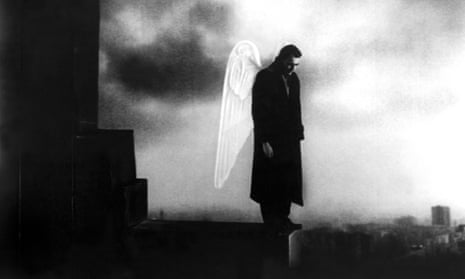
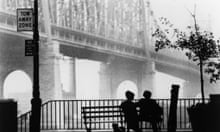
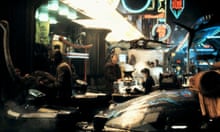
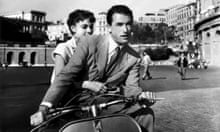
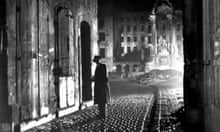
Comments (…)
Sign in or create your Guardian account to join the discussion